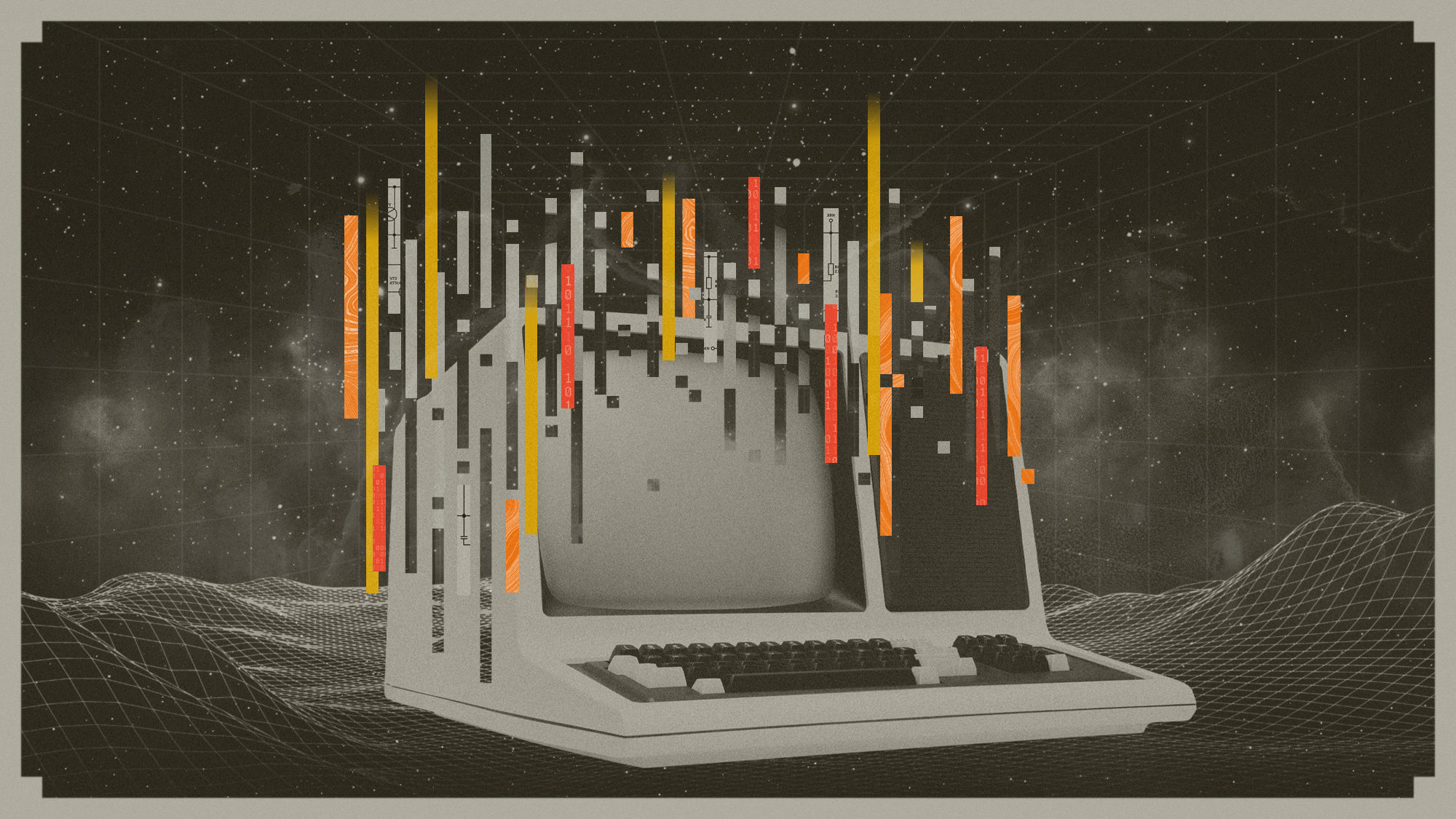Is quantum computing the next technological frontier?
Some people believe the technology will change the world, but others are skeptical of its risks


A free daily email with the biggest news stories of the day – and the best features from TheWeek.com
You are now subscribed
Your newsletter sign-up was successful
As technology continues to advance toward higher realms, a new mechanism has entered the crosshairs of scientists: quantum computing. This process uses the principles of fundamental physics to "solve extremely complex problems very quickly," according to McKinsey & Company.
Using logic-based computing to solve problems isn't a new phenomenon; it was (and remains) the basis for artificial intelligence and digital computers. However, quantum computers are "poised to take computing to a whole new level," McKinsey said, because the introduction of physics into computing has the "potential to solve very complex statistical problems that are beyond the limits of today's computers." Quantum computing alone "could account for nearly $1.3 trillion in value by 2035."
However, while organizations like McKinsey are clearly high on the potential for quantum computing, others say that it could create a slew of new problems.
The Week
Escape your echo chamber. Get the facts behind the news, plus analysis from multiple perspectives.

Sign up for The Week's Free Newsletters
From our morning news briefing to a weekly Good News Newsletter, get the best of The Week delivered directly to your inbox.
From our morning news briefing to a weekly Good News Newsletter, get the best of The Week delivered directly to your inbox.
What did the commentators say?
Quantum computing is a huge leap forward because "complex problems that currently take the most powerful supercomputer several years could potentially be solved in seconds," said Charlie Campbell for Time. This could open "hitherto unfathomable frontiers in mathematics and science, helping to solve existential challenges like climate change and food security."
Quantum computing is already being used for more practical purposes. One company called D-Wave Systems has "used its quantum computer to help clients determine driver schedules for grocery-store deliveries, the routing of cross-country promotional tours and cargo-handling procedures at the port of Los Angeles," said Bob Henderson for The Wall Street Journal. It could even help optimize seemingly minute problems, such as the arranging of planes at airport gates. If trying to arrange just 50 planes at 100 gates, the number of possibilities would be "10 to the hundredth power — far more than the number of atoms in the visible universe," said Henderson. No standard computer "could keep track of all these possibilities. But a quantum computer potentially could."
While ubiquitous usage of quantum computers is a long way away, there are some strides being made, as Google "has built a quantum computer that's about 158 million times faster than the world's fastest supercomputer," said Luke Lango, a senior investment analyst at InvestorPlace. And quantum theory in general "has led to huge advancements over the past century. That's especially true over the past decade," as scientists "have started to figure out how to harness the power of quantum mechanics to make a new generation of super quantum computers."
But with new advancements come new sets of problems. Case-in-point: Quantum computers have "become a national security migraine," said Campbell for Time, because its ability to solve problems "will soon render all existing cryptography obsolete, jeopardizing communications, financial transactions and even military defenses."
A free daily email with the biggest news stories of the day – and the best features from TheWeek.com
This would be "potentially a completely different kind of problem than one we've ever faced," Glenn S. Gerstell, a former general counsel for the National Security Agency, said to The New York Times. There may be "only a 1% chance of that happening, but a 1% chance of something catastrophic is something you need to worry about." This risk "extends not just to future breaches but to past ones: Troves of encrypted data harvested now and in coming years could ... be unlocked," said Zach Montague for the Times.
What next?
Even as the risks are documented, investors are working to ensure quantum computers can be used on a widespread scale. Curtis Priem, the co-founder of AI chip manufacturer Nvidia, is "looking to establish New York's Hudson Valley as an epicenter of quantum-computing research in the country," the Journal said. Priem has already donated more than $75 million to develop a quantum computing system at Rensselaer Polytechnic Institute, making it the first college campus in the world with such a device.
Others are looking at the future of the industry through a more financial lens; Illinois legislators will soon be "asked to consider a series of incentives" as part of the state's "intensifying push to become the nation's hub for quantum computing," said Crain's Chicago Business. One of these major proposals is the creation of an "'enterprise zone' that would allow the state to provide quantum companies exemptions from sales, payroll and utility taxes for up to 40 years." If lawmakers in Illinois pass these incentives, there is a high chance that other states could follow.
Justin Klawans has worked as a staff writer at The Week since 2022. He began his career covering local news before joining Newsweek as a breaking news reporter, where he wrote about politics, national and global affairs, business, crime, sports, film, television and other news. Justin has also freelanced for outlets including Collider and United Press International.
-
 How the FCC’s ‘equal time’ rule works
How the FCC’s ‘equal time’ rule worksIn the Spotlight The law is at the heart of the Colbert-CBS conflict
-
 What is the endgame in the DHS shutdown?
What is the endgame in the DHS shutdown?Today’s Big Question Democrats want to rein in ICE’s immigration crackdown
-
 ‘Poor time management isn’t just an inconvenience’
‘Poor time management isn’t just an inconvenience’Instant Opinion Opinion, comment and editorials of the day
-
 Are Big Tech firms the new tobacco companies?
Are Big Tech firms the new tobacco companies?Today’s Big Question A trial will determine whether Meta and YouTube designed addictive products
-
 Can Europe regain its digital sovereignty?
Can Europe regain its digital sovereignty?Today’s Big Question EU is trying to reduce reliance on US Big Tech and cloud computing in face of hostile Donald Trump, but lack of comparable alternatives remains a worry
-
 Claude Code: Anthropic’s wildly popular AI coding app
Claude Code: Anthropic’s wildly popular AI coding appThe Explainer Engineers and noncoders alike are helping the app go viral
-
 TikTok finalizes deal creating US version
TikTok finalizes deal creating US versionSpeed Read The deal comes after tense back-and-forth negotiations
-
 Data centers could soon be orbiting in space
Data centers could soon be orbiting in spaceUnder the radar The AI revolution is going cosmic
-
 What is Roomba’s legacy after iRobot bankruptcy?
What is Roomba’s legacy after iRobot bankruptcy?In the Spotlight Tariffs and cheaper rivals have displaced the innovative robot company
-
 AI griefbots create a computerized afterlife
AI griefbots create a computerized afterlifeUnder the Radar Some say the machines help people mourn; others are skeptical
-
 The robot revolution
The robot revolutionFeature Advances in tech and AI are producing android machine workers. What will that mean for humans?
